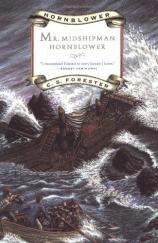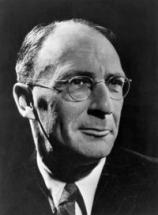Reading Group Guide
Discussion Questions
Mr. Midshipman Hornblower

1. Unlike the other Hornblower novels, Mr. Midshipman Hornblower is divided into discrete chapters, each with its own title, as if it were a collection of short stories. Why do you think Forester would have chosen to do this? Do you think it is an effective device?
2. In Chapter 3, "Hornblower and the Penalty of Failure," Hornblower chooses not to reveal that his actions enabled the capture of the Pique, as self-punishment for his failure with the Marie Galante (the rice ship). What does this decision reveal about his character? Do you agree or disagree with his decision? Do you believe it is a just self-punishment?
3. In Chapter 6, "Hornblower, the Frogs and the Lobsters," how are the Royalist French, ostensibly allies to the British, portrayed? What does Hornblower think of them? What does Edrington, the British major, think of them? Why would Forester make a point of describing how Hornblower, a quick-thinking and daring seaman, is uncomfortable and awkward on land? What effect does this have on the story as narrated from Hornblower's point of view?
4. In Chapter 1, "Hornblower and the Even Chance," Mr. Simpson is able to terrorize the other midshipman by dint of his seniority. What do you think of such rigid hierarchy, which is enforced even to the point of injustice? Under what circumstances might it be important to have a clearly established and unchallenged order of precedence? Do you feel that the narrator and/or Hornblower questions the validity of a system that allows a man like Simpson to rule?
5. While in a prisoner in Spain Hornblower prefers to spend his two hours of freedom "wandering in the companionship of the sea." (p. 283) Does he have other companions in the book? Does he want any? In what ways is he different from his fellow sailors? How does he consciously or unconsciously isolate himself from his crewmates? Why does he do this?
6. In Chapter 4, "Hornblower and the Man Who Felt Queer," Hornblower kills the epileptic sailor endangering the mission , and concludes "He had done his duty, and he was certain of it." (p. 108) These sentiments seem cold-hearted by today's standards. Was life less valuable to them than it is to us today? What would you have done in Hornblower's place? Will the fact that Hornblower was the only one to regret the loss of the man more than the loss of the boat be an asset or a liability to him as a commanding officer?
7. In Chapter 1, Hornblower's passion for whist comes to light: "He revelled in the nice calculation of chances, in the varying demands it made upon his boldness or caution." (p. 19-20) How does this foreshadow his future successes in battle?
8. The book is told from Hornblower's point of view, despite its third person narration. In the letter from Kitty Cobham (the Duchess) in Chapter 10, we finally get a glimpse of how others see him. How does this letter change your perception of Hornblower? Does his reaction to it help you understand him? Does the narrator give any clues as to how others see him?
9. Hornblower's handling of Finch (aka The Man Who Saw God) during the battle with the French ship is an excellent example of Hornblower's natural ability to manipulate people. What other example of this do you find in the book? Is there a difference between manipulating and motivating?
10. In Chapter 7, "Hornblower and the Spanish Galleys," after boldly capturing a galley and being promoted to acting-lieutenant, Hornblower credits his actions to "fighting madness, sheer insanity." Upon further analysis he concludes that, while Soames was killed because "he had not the quickness of thought" to adapt to the new situation, "only good fortune had allowed [Hornblower] to live through it." (p. 208) Do you believe that Hornblower's only assets are madness and good fortune? Why is he unable to believe in his own ingenuity?
11. Hornblower has definite reasons for forcing a duel with Simpson in Chapter 1. What were Dreadnought Foster's reasons for forcing a duel with Captain Hammond in Chapter 8 ("Hornblower and the Examination for Lieutenant")? Was anger his only motivation? What lessons do you think Hornblower took away from his experience with Captain Foster?
Mr. Midshipman Hornblower
- Publication Date: January 8, 2013
- Paperback: 320 pages
- Publisher: Back Bay Books
- ISBN-10: 0316289124
- ISBN-13: 9780316289122








